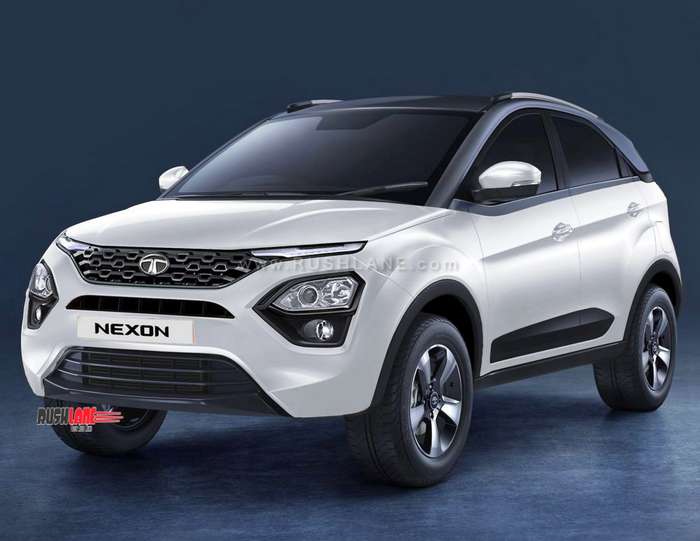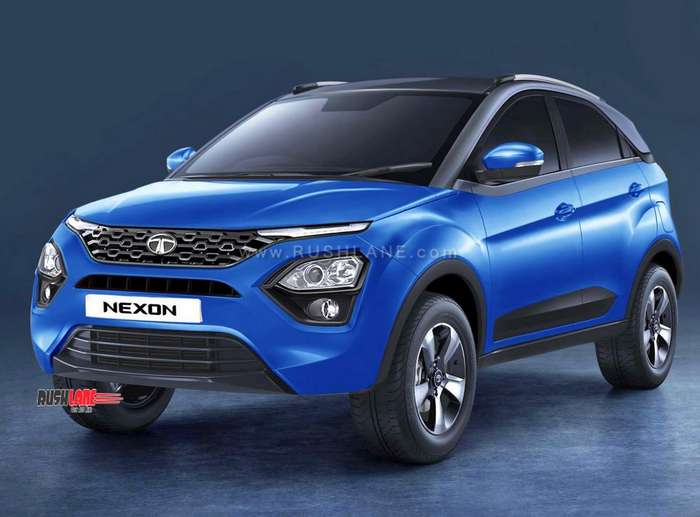
Speaking at the Annual General Meeting recently, Tata Group chairman N Chandrasekaran confirmed that Tata Motors will launch four new electric vehicles including the Altroz, Nexon and improved Tiago in the next eighteen months. The fourth EV stays anonymous as of now.
While officials from Tata Motors had previously gone on record to state that every new Tata product will be compatible with fully electric powertrain, there has been no official word on the Nexon EV till now. Tata Nexon electric was spied inside company plant a few months back, but a word about its launch had never been spoken by the company.
The electric Nexon SUV is expected to be launched sometime in the later part of next year. The Nexon would also be ready for a mid-life facelift by then. In this post, the images are renderings of facelifted Nexon.

We expect the Tata Nexon EV to be sharing its electric powertrain with the Altroz EV which was showcased at the Geneva Motor Show in March this year. Technical specifications are still under wraps but Tata Motors has announced that the electric Altroz will be good for a range of 250 to 350 km on a single charge. The battery is most likely to be a lithium-ion unit. Expect the Nexon to offer slightly lower range owing to its higher kerb weight.
If the price tag (INR 9.99 lakh) of Tata Tigor EV is any indication, expect both Altroz EV and Nexon EV to be priced higher (the hatchback will be slightly more affordable than the crossover). The subsidy under FAME-II scheme, GST rate cut and the tax concession on EV loan interest are expected to off-set the high price tag to a considerable extent.
The Tata Nexon EV is expected to be visually distinguished from its regular IC-engined siblings. A closed grille, reprofiled bumper and drag reduction wheels should be on cards. The Tata Nexon electric will be picking up fight with Mahindra XUV300 electric which is also currently under development with a launch timeline of 2020. There is a high chance that these compact electric crossovers will be joined by similarly specified models from other OEMs sooner than later.
Moving forward, electric variants of existing and new products would be crucial to success not only for Tata Motors but for other automakers as well.

